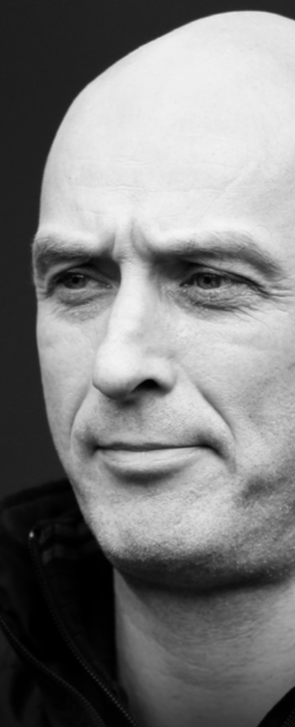Life after football – Rob Swire

So what do colleagues get up to in the first years after leaving the game?
We ‘Kick Off’ this series catching up with the former Manchester United physiotherapist Rob Swire
In what circumstances did you leave football?
I had been working in football since 1990 (starting with Halifax Town FC in 1990 and at Manchester United since 1991), and as anyone working in football will know, the time involved is a huge commitment to make. After 24 years in the game I felt it was the right time to move to a gentler lifestyle.
As with most areas of modern life, the working hours and administration duties in football were increasing year by year and I was always committed to do whatever the job required. So I seemed to be doing less and less physiotherapy and more and more management and travelling. It wasn’t an easy decision by any means, but as I had been in the game for such a long time, I figured it was the right time for me to make the final decision. I was certainly lucky to be able to leave football when I wanted to rather than ‘unexpectedly’ as is more often the case.
Additionally, I had worked with Sir Alex for such a long time and with David Gill, the Chief Executive for almost as long and they had both left the previous season. It felt like it was a turning point for the Club when they both left and it seemed it would be the right time for me to go too.
Did you have any idea at the time what you might wish to do?
I didn’t have any fixed plans for when I left. I was ready for a break and basically I got a dog, took up walking her every day and started doing the house and garden up. I continued with some medicolegal work I had been doing previously and that began to get busier. After a year I worked at the inaugural European Games in Azerbaijan in the summer of 2015, which was my first clinical work since leaving Man United. I really enjoyed the 3 week tournament, like a mini Olympics, and I thought I should really get back into doing something.
How did you eventually find a path to go down and what are you doing now?
I did a talk on medicolegal aspects of working in sport for the Injured Jockey Fund and following that, and with the help of a physiotherapist I met at the European Games, I began working at Jack Berry House – a rehabilitation centre for jockeys in Malton, North Yorkshire. It was purpose built in 2015 and has fantastic facilities for the jockeys. I’m only there 1 day a week but I’m loving it. The jockeys are great to work with, very dedicated and tough as any sportsperson I have ever met. You get some very serious injuries when you fall off a horse jumping a fence at full speed and it’s been an eye opener to work with them. In an industry where you are not paid when you can’t ride it has quite an effect on your determination to get fit again!
Did your experience in football help?
Yes, a career in sports injuries has been very helpful and I feel I have been able to pass on some of my experiences over the years to help their rehabilitation.
Any plans for a change of direction in the future?
I’m very happy with what I’m doing now so I don’t envisage any more changes in my career – but you never know, I never thought I would work with jockeys. I’m often asked if I miss working in football, and though I had a great time, and a long time, working in the game I don’t regret leaving when I did and I don’t envisage going back. The ‘banter’ was great, but long hours, 7 days a week and 2-3 nights away from home a week I don’t miss!
Any advice for former colleagues considering a change of career, or who find themselves having to?
It was easier for me to leave football after 24 years than it would have been after 5, 10 or 15 years, so it`s not applicable to everyone, but when you’re head down working continuously at a club there is a tendency to think that the world revolves around that environment, particularly when there is so much media coverage around the sport. As long as you’re enjoying it that’s fine – and it can be a great life and very rewarding professionally to work with elite athletes in elite facilities. I loved my time in football. But I can assure you that there is a world outside of football and one that can be just as professionally rewarding, and there are new opportunities in sports increasing all the time. The experience gained in football would be ideal in many other situations.
And your garden might be a bit tidier too!
